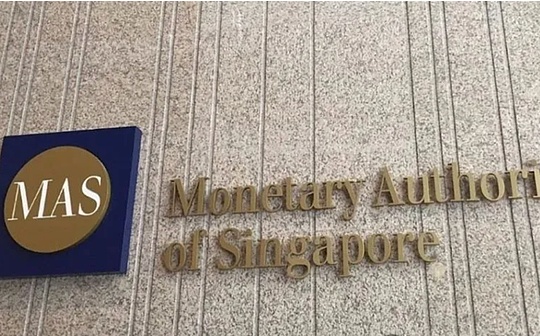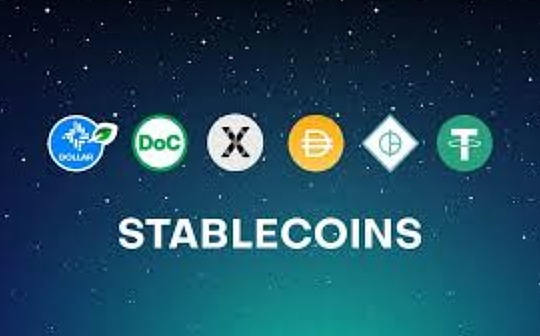From the south of the city to the Blue House: Li Zaiming's ten-year experiment on giving money

Reprinted from jinse
06/05/2025·15DSouth Korea's new president Lee Jae-ming has many labels, including mayor of soda, hunger strike for 20 days, idols, live broadcasts over the wall and breaking through Congress. In addition to these widely recognized labels, if you look closely at his political experience over the past decade, you will find that he also has an important label, he loves to pay money. From Seongnam City to Gyeonggi Province, from a 24-year-old young man to a farmer and artist, and now it will be distributed to all citizens.
Li Zaiming spent ten years turning a seemingly crazy idea into reality step by step. The question he wants to answer is simple: In the AI era, does everyone have the right to share social wealth unconditionally?
UBI seems to be advanced, but it is actually a concept that has been discussed for centuries. As early as the 16th century, Thomas More proposed a similar idea in Utopia. In the 1960s, Nobel Prize winner in economics Milton Friedman proposed the theory of "negative income tax", and Martin Luther King called for the establishment of a "guaranteed income" system in his last book during his lifetime. In the 1970s, the Nixon administration almost even passed a UBI-like family aid program. Entering the 21st century, with the development of artificial intelligence, more and more people have begun to seriously discuss the possibility of UBI, from Silicon Valley technology elites to Nobel Prize winners. Dozens of countries have carried out UBI pilot experiments to explore the practical feasibility of this concept.
And in South Korea, Lee Jae-ming is the most active UBI advocate and practitioner.
After being elected as Gyeonggi-do governor in 2018, the population in the jurisdiction surged from 900,000 to 13 million, accounting for one-quarter of South Korea's total population. He quickly expanded the original youth basic income plan that was limited to Seongnam City to all 31 cities and counties in Gyeonggi-do. In 2022, he launched a more radical experiment in rural areas: he selected a village by drawing lots, and all 3,880 residents of the village will receive a monthly allowance of 150,000 won in five years. This experiment is intended to study the impact of basic income on health, local economy, employment, and distribution inequality.
In the 2022 presidential election, Li Zaiming even proposed a complete and gradual UBI plan. Its core content is to provide economic support to all Korean citizens, with the initial amount set at 250,000 won per person per year, and it is planned to gradually increase to 1 million won during its term of office. The total annual expenditure of these basic income plans is about 58 trillion won, and Lee Jae-ming plans to fund mainly through land value- added tax and carbon tax, a plan that has been strongly criticized by rival Yoon Seo-yeol. During the term of the Moon Jae-in government, the tax rate for inclusion and comprehensive property tax increased sharply, which also triggered strong resistance from the public to any increase in real estate- related taxes. Although the land value-added tax proposed by Li Zaiming only taxes on land value, Li Zaiming failed to let the public understand the difference. Polls show that most people disagree with what he said, "the land dividend plan will make most of the population a net beneficiary." Against this background, Li Zaiming had to give in, saying that if the majority of people disagree, he would not implement national basic income and land value- added tax, but he still insisted on providing at least basic income to specific groups, such as youth groups and farmers groups.
In the end, Lee Jae-ming failed at a slight disadvantage of 0.7% in the 2022 election, which may be the political price he paid for his UBI vision.
With the lessons learned last time, Lee Jae-ming's position and expression on UBI issues changed considerably during the 2025 presidential campaign. For a long time, he deliberately avoided UBI issues and instead emphasized pro- business policies, R&D investment, and the development of artificial intelligence. Despite this, UBI is still an important part of his progressive reform attempt and is deeply imprinted in his political image.
On May 22, only 11 days before the voting day. Perhaps the cumulative advantage was too obvious, which made him no longer afraid of the controversy that UBI might cause. He once again showed a grand vision called "Basic Society", and "UBI Uncle" was back.
The "basic society" is not a completely new specific UBI program, but more like a relatively mild but strong UBI element, aiming to cover the blueprint of a complete income support system from birth to old age. The name has changed, but the core concept has not changed. Li Zaiming believes that in an era where AI and robots dominate production, the traditional assumption that "everyone can continue to work" is outdated. The technological dividend should not be monopolized by a few people, but should be shared by the whole people.
To understand Li Zaiming’s UBI vision, we need to explore the deep philosophical thinking and insights into the times behind it. He regards it as a core plan to deal with social polarization, the impact of the Fourth Industrial Revolution, consumption shrinkage and the protection of national economic rights. He believes that modern capitalism is facing a structural crisis, especially in the context of technological innovation, the gap between "no employment growth" and the rich and poor will intensify. UBI stimulates consumption by increasing people's income, forming a virtuous economic cycle, and has the dual characteristics of welfare and economic stimulation.
In addition, Lee Jae-ming emphasized that UBI aims to protect the people from enjoying "basic economic rights" and live a decent life. He believes that when labor is no longer the only means of survival, the dividends of technological progress should be shared by the whole people. UBI can redefine labor, help people get rid of "pain labor", pursue "happy labor" and self-realization.
Extensive discussions and realistic challenges of South Korea's UBI
Lee Jae-ming is not the only politician in South Korea who supports UBI. The UBI concept has a broad mass base in Korean society, and even gave birth to a political organization called the "Basic Income Party". The party was founded in 2020 and developed its members mainly through the Internet, with the slogan "600,000 won per month to everyone", and they really won a seat in the National Assembly in subsequent elections.
Meanwhile, other forms of income support trials are underway. In July 2022, Seoul Mayor Oh Se-hoon launched a three-year randomized double-blind experiment in his jurisdiction, a negative income tax program based on the family. Negative income tax is often regarded as an important variant of UBI. Its core mechanism is that taxes are required when income exceeds a certain tax line; if it does not exceed it, not only does it not require tax payment, but instead you can receive subsidies. What is even more surprising is that Lee Jae-ming's political opponent, the National Power Party, also incorporated the concept of basic income into the party platform, and clearly stated: "The state should support every citizen in a safe and free life through basic income to deal with the upcoming Fourth Industrial Revolution era."
All these show that UBI has moved from marginal concepts to mainstream in South Korea. Nevertheless, the widespread implementation of UBI in South Korea and around the world still faces great challenges, such as fiscal sustainability, social consensus reaching, and political and administrative coordination capabilities. The future of Li Zaiming's "basic society" is destined not only depends on the superiority of ideas, but also on whether various problems in reality can be properly solved. Regardless of the future, Lee Jae-ming's unremitting exploration around UBI has provided valuable experience in the innovation of social policies in South Korea and even the world.
In an era where material production is extremely abundant and technology is enough to replace human power, what is the ultimate yardstick for social progress? When the machine took over the production line, Li Zaiming's exploration asked us: Can humans transcend passive adaptation and actively shape their own, dignified and valuable future society?
This may be the deepest political legacy he can leave behind - not the definite answer, but the eternal proposition of how humans maintain dignity and value in the torrent of technology.


 chaincatcher
chaincatcher
